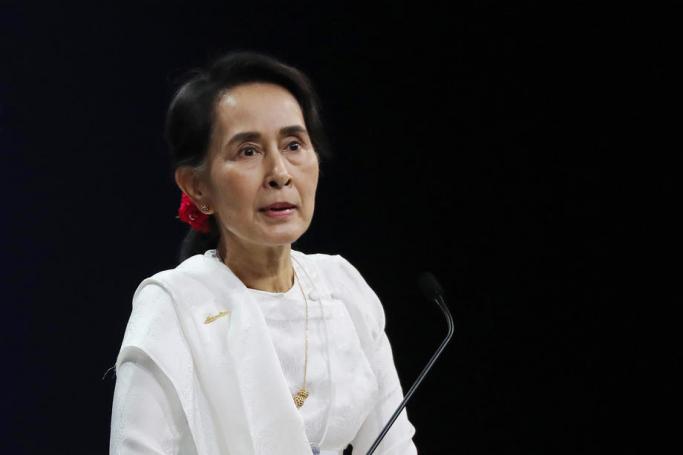It was a new dawn for Myanmar when Aung San Suu Kyi took control in 2015 as a result of the landslide election victory for the National League for Democracy – sending a powerful message about female leadership in a patriarchal world. Yet all that promise was dashed when the February 2021 military coup overturned the tables and put the generals – a male hierarchy – back into power.
Myanmar experienced female leadership from a woman revered as the country’s democracy icon, a period not without its challenges, it should be said. But the sad truth is that Myanmar society remains stuck in the past and prejudiced against women and female leadership.
Mizzima has interviewed a number of women in Myanmar and in exile over the last few weeks to gain an insight into the drive for gender equality in a country where men tend to rule the roost and even women – in their roles as mothers and grandmothers – continue to try to keep their daughters in their place.
Wuttyee, an alias, has a job in marketing in the commercial hub on Yangon, a city reeling from the disruption after the coup and the flood of public demonstrations.
Wuttyee says society tends to look down on women and questions their abilities.
“We have a society who regards us, women, as lacking leadership skills,” she said. “For instance, while driving, if a car is having trouble with parking, people usually assume that the driver would be a girl.”
As she notes, society considers women as being indecisive.
“Human beings are born with different genders which cannot be chosen since birth. Therefore, it is unacceptable that society generalizes who is smarter, more intelligent, and can perform better depending on gender,” Wuttyee says.
“To answer the question of when it was started, it was started by our parents. Similarly, our parents endowed this bad inheritance from their parents as well.”
“This gender stereotype, transmitted from our parents - our first teachers - creates a society that casts doubt on women’s abilities,” Wuttyee says.
Naturally, a core issue that stands out in a country currently run by male generals is the role of women in politics and leadership roles, a subject for discussion as Aung San Suu Kyi helped break the mold – winning two elections and trying to increase the number of women in political leadership roles.
“While talking about leadership skills, we need to consider political activities as well,” Wuttyee says.
“When we take a closer look, women play only parts of a role in politics. As mentioned, doubt about women’s leadership skills results in a low participation rate of women in politics.”
She says capability does not truly depend on gender.
“Personally, I have an opinion about whether women are suppressed because Aung San Su Kyi is a woman. She, as a woman, has the ability to outperform the standard and was leading the whole nation.
Thereby, in my opinion, we are limited to participating in political activities. As a result, we need to establish a society that, if there is prejudice it is based on one’s capability rather than gender,” Wuttyee says.
The gender differences are deeply ingrained from childhood.
“We fail to take notice that a toxic society is created by poor childhood care, which results into women missing out on opportunities. Since at a young age, while playing, girls are taught to play only with miniature dolls, sitting still as a woman of nobility. On the contrary, boys can play however they want, like playing sweaty football games. We are used to the saying of ‘living the life of a woman of nobility with decency and gentleness.’ Thus, girls become like robots trained within a system. We are only regarded to be decent girls when we are patient, calm and loyal. This stereotype leads us to miss- measure the standard, resulting in girls missing opportunities and growing up under the traditional culture,” Wuttyee adds.
Thi Dar, an alias, a young woman who also works in Yangon, says that Myanmar culture means women who wear racy clothes can face problems.
“When a girl wears a hot dress, she will be looked at as a criminal and verbally abused by society.
Literally, she is a victim of a crime. Society has a mindset that they have a right to criticize the girl. In this case, we need to clearly know that this mindset does not meet developing standards anymore,” Thi Dar says.
Thi Dar raps the behavior of boys who mock and make fun of teenage girls, whatever they are wearing.
“The one who should be ashamed should be the boy, who is making fun of the girl,” she says.
There is no reason why boys can lead or perform better than girls, Thi Dar claims. Yet society continues to suppress women, keeping them in their place, a hangover from a society where even the generals remain fearful of a woman.












